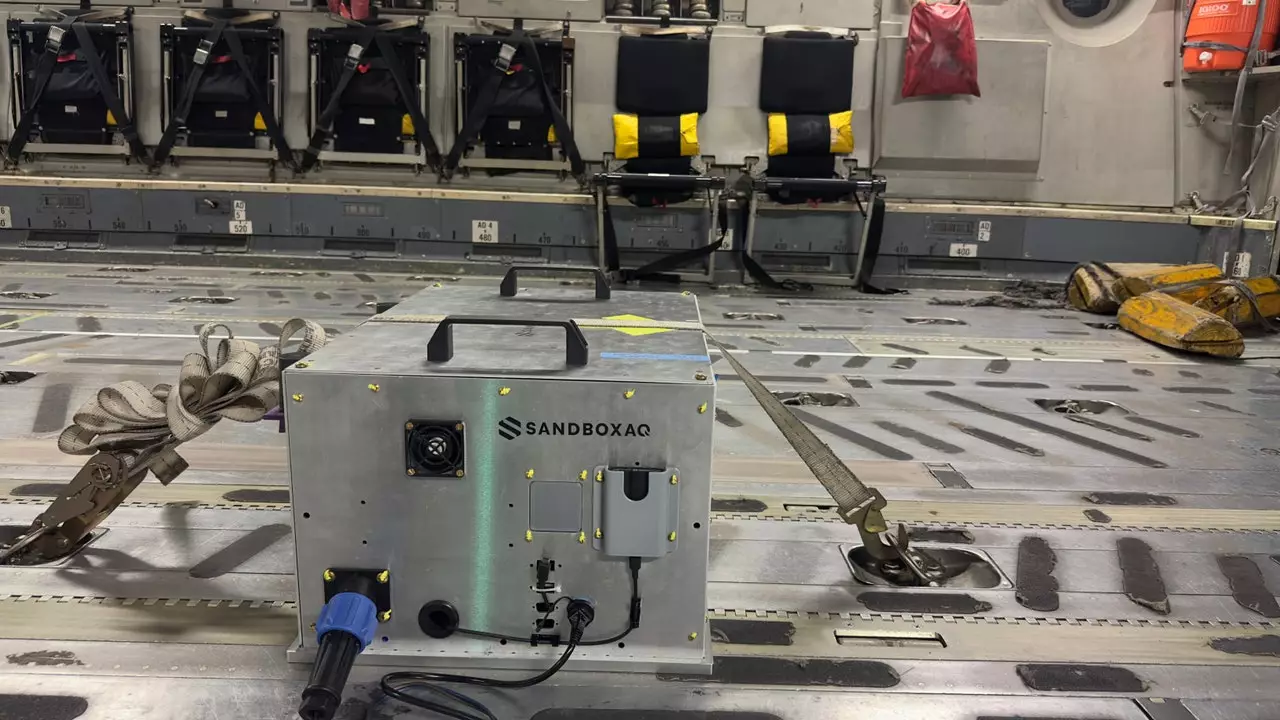In today’s digital age, global navigation satellite systems (GNSS) are fundamental to a vast array of services that underpin our daily lives, from navigation and mobile communication to energy distribution. Comprising a constellation of satellites positioned high above Earth, these systems transmit signals that facilitate accurate positioning and timing. However, despite their critical role, these signals face increasing vulnerabilities from various sources, including deliberate jamming and spoofing. A growing concern is the impact of these threats, particularly in volatile regions like the Middle East and South China Sea, prompting a need for alternative or supplemental navigation solutions.
SandboxAQ, a startup positioned at the intersection of artificial intelligence (AI) and quantum technology, presents a promising solution to the shortcomings of GNSS. Their innovative navigation system, AQNav, utilizes quantum magnetometers to detect the Earth’s magnetic field, representing a significant push toward creating a resilient navigational framework. Instead of supplanting traditional GNSS technology, AQNav aims to augment existing systems, providing a reliable backup when conventional signals are compromised. According to Luca Ferrara, the general manager of SandboxAQ’s navigation department, this dual functionality enhances safety while preserving the integrity of primary navigation systems.
The heart of AQNav lies in its ability to analyze the Earth’s magnetic field with unprecedented precision. By utilizing quantum magnetometers that measure minute changes in magnetic fields, the system seeks to identify unique geological signatures, akin to a fingerprint. AI algorithms further refine this process, accurately determining an aircraft’s position by comparing real-time data against established magnetic field maps. Notably, these algorithms are also designed to filter out noise and interference generated by the aircraft itself, enhancing precision. This multifaceted approach exemplifies how advanced technology can effectively address the reliability concerns surrounding GPS systems.
The potential of AQNav has garnered the interest of notable entities such as the US Air Force, Boeing, and Airbus. Their collaborative efforts have involved numerous test flights across various aircraft types, demonstrating the system’s versatility and capability in real-world scenarios. The tests, which commenced in May 2023, included flights under diverse conditions and during significant military exercises, underscoring the system’s potential applicability in critical operations. This practical deployment serves as a vital step in proving the concept and effectiveness of magnetic field-based navigation systems.
The foundation of SandboxAQ’s groundbreaking technology can be traced back to experiences within Google’s parent company, Alphabet. Between 2016 and 2022, a dedicated team sought to explore the viable applications of quantum and AI technologies, paving the way for innovations like AQNav. This legacy of exploration and technological development asserts the importance of interdisciplinary research in shaping the future of navigation systems.
As GNSS signals increasingly become targets for interference, the need for robust alternative systems like AQNav cannot be overstated. The integration of AI and quantum technologies holds the promise of not only preserving navigational accuracy but also bolstering safety across various sectors. As the aviation industry and military organizations continue to explore this technology, the implications for global navigation practices are profound, marking a transformative era in dependable navigation solutions. Ultimately, the quest for reliable navigation in the face of emerging challenges underscores the importance of innovation in safeguarding our interconnected world.


Leave a Reply